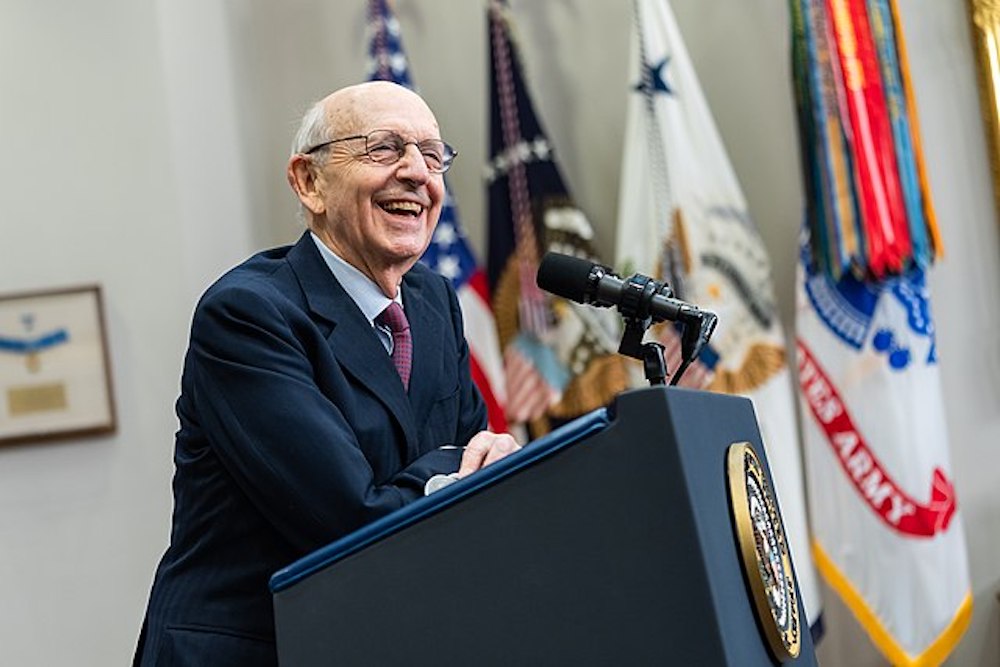
Stephen Breyer has spent more than two decades on the Supreme Court. The most senior member of the Court's liberal wing, Breyer’s background includes a mixture of academic, political, and judicial experiences. After graduating from Harvard Law School, Breyer got his first taste of the Supreme Court by clerking for Justice Arthur Goldberg in 1964. He continued his legal career as Special Assistant to the Assistant U.S. Attorney General for Antitrust, teaching law at Harvard, and serving as Assistant Special Prosecutor of the Watergate Special Prosecution Force in 1973. Seven years later, President Carter made him a federal judge, a position he held for the next fourteen years. Then, in 1994, President Clinton appointed Breyer to his current position. Breyer, who was elected to the American Philosophical Society in 2004, was also named chair of the Pritzker Architecture Prize jury, succeeding previous chair Glenn Murcutt in 2018. On January 27, 2022, Breyer and President Biden announced Breyer's intention to retire from the Supreme Court.
Named “Most Likely to Succeed” in his high school yearbook, Breyer enrolled at Stanford University in 1955. He longed to go to Harvard, but his parents were concerned he was too bookish and therefore made him go to Stanford, where they believed he would be less isolated. Eventually, Breyer found his social footing. He fell in with a group of students who shared his passion for philosophy and international relations. They would stay up late debating the theories of Ludwig Wittgenstein and Willard Quine, or playing bridge at El Tigre eating club. On top of that, Breyer became active in the Model United Nations and would take foreign students on tours of San Francisco in his red ‘57 Chevy. Showing his first interest in politics, he even ran unsuccessfully for student office on a platform of putting more bicycle racks on campus. In 1959, he earned his bachelor of arts in philosophy, graduating with highest honors and a member of Phi Beta Kappa.
As one of the country's top legal minds, it is no surprise that Breyer was selected to deliver the commencement address at his alma mater, which he did in 1997. The event had added importance to Breyer, whose son, Michael, was also graduating from Stanford that year. Luckily, the audience of graduates got a taste of Breyer’s humor during his address, when he said, “You will be advised to ask many questions. In your careers, the science graduate will ask, ‘Why does that work?’; the engineering graduate, ‘How does it work?’; the economics graduate, ‘What does it cost?’; and the liberal arts graduate, ‘Do you want french fries with that hamburger?’” But Breyer also mixed in some gravitas, assuring the Class of '97 that their contributions will certainly affect the Stanford community. “And your lives will tell stories that have not just a private, personal part," he said, "but a public, a community part as well."
